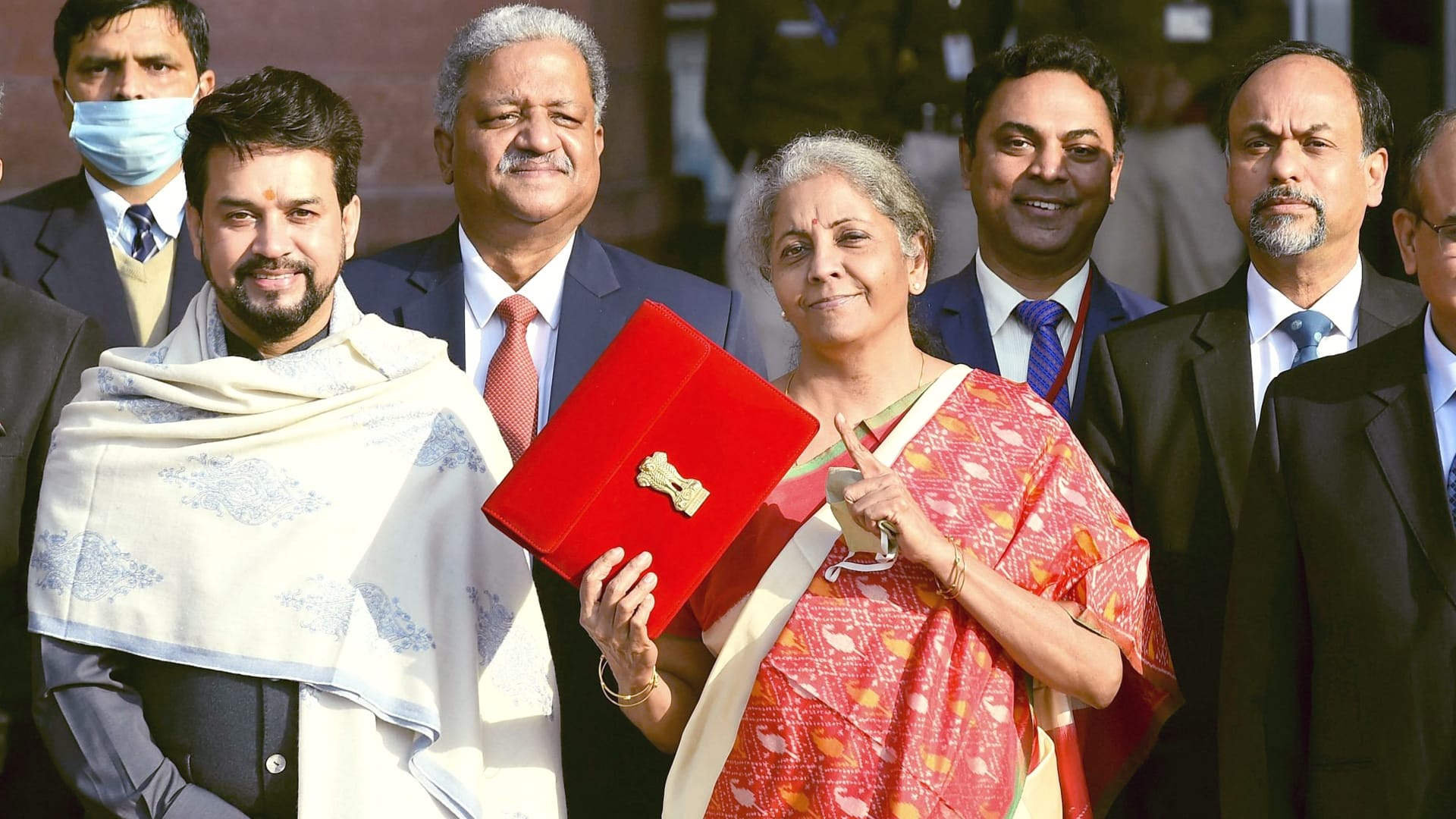Economy
Funding to be stepped up for NIP; National Monetization Pipeline launched: FM
Expressing commitment to augment the country’s infrastructure, Finance Minister Nirmala Sitharaman on Monday proposed to significantly enhance capital expenditure to Rs 5.54 lakh crore in the next fiscal, besides creating institutional structures and giving a big thrust to monetizing assets to achieve the goals of the National Infrastructure Pipeline (NIP). Sitharaman said NIP, that was launched in December 2019 with 6,835 projects, has now been expanded to 7,400 projects and around 217 projects worth Rs 1.10 lakh crore under some key infrastructure ministries have been completed. “For 2021-22, I propose a sharp increase in capital expenditure and thus have provided Rs 5.54 lakh crores which is 34.5% more than the BE of 2020-21,” the finance minister said. Presenting the Union Budget 2021-22 in Parliament, Sitharaman announced that NIP is a specific target which the government is committed to achieving over the coming years. It will require a major increase in funding both from the government and the financial sector, she said.
“In this Budget, I propose to take concrete steps to do this, in three ways: Firstly, by creating the institutional structures; secondly, by a big thrust on monetizing assets, and thirdly by enhancing the share of capital expenditure in central and state budgets,” she said. The minister announced that a sum of Rs 20,000 crore has been provisioned in the Budget to capitalise a Development Financial Institution (DFI). “The ambition is to have a lending portfolio of at least Rs 5 lakh crore for this DFI in three years time,” she said, adding a Bill will be introduced to set up the DFI which will act as a provider, enabler and catalyst for infrastructure financing. She also announced the launch of a “National Monetization Pipeline” of potential brownfield infrastructure assets, stating that monetizing operating public infrastructure assets is a very important financing option for new infrastructure construction. An asset monetization dashboard will also be created for tracking the progress and to provide visibility to investors, she said. Listing measures in this direction, she said the National Highways Authority of India (NHAI) and Power Grid Corporation of India (PGCIL) each have sponsored one InvIT that will attract international and domestic institutional investors. Five operational roads with an estimated enterprise value of Rs 5,000 crore are being transferred to the NHAI infrastructure investment trust (InvIT). Similarly, transmission assets worth Rs 7,000 crore will be transferred to the PGCIL InvIT, she noted.
Also read: Govt reduces customs duty on certain steel items to provide relief to MSMEs
Railways will monetize dedicated freight corridor assets for operations and maintenance, after commissioning. The next lot of airports will be monetized for operations and management concession. Other core infrastructure assets that will be rolled out under the asset monetization programme are — NHAI operational toll roads; transmission assets of PGCIL; oil and gas pipelines of GAIL, IOCL and HPCL; AAI airports in tier II and III cities; other railway infrastructure assets; warehousing assets of CPSEs such as Central Warehousing Corporation and NAFED, among others. Regarding highways, she said more than 13,000 km length of roads, at a cost of Rs 3.3 lakh crore, have already been awarded under the Rs 5.35 lakh crore Bharatmala Pariyojana, of which 3,800 kms have been constructed. Indian Railways has prepared a ‘National Rail Plan for India – 2030’ under which a ‘future-ready’ railway system will be created by 2030, she said. To strengthen urban infrastructure, a new scheme will be launched at a cost of Rs 18,000 crores to support augmentation of public bus transport services. On the power front, the minister said a revamped reforms-based result-linked power distribution sector scheme will be launched with an outlay of Rs 3,05,984 crore over five years. Major ports will be moving from managing their operational services on their own to a model where a private partner will manage it for them, she said. For the purpose, seven projects worth more than Rs 2,000 crore will be offered by the major ports on public private partnership mode in FY21-22, Sitharaman added.








































